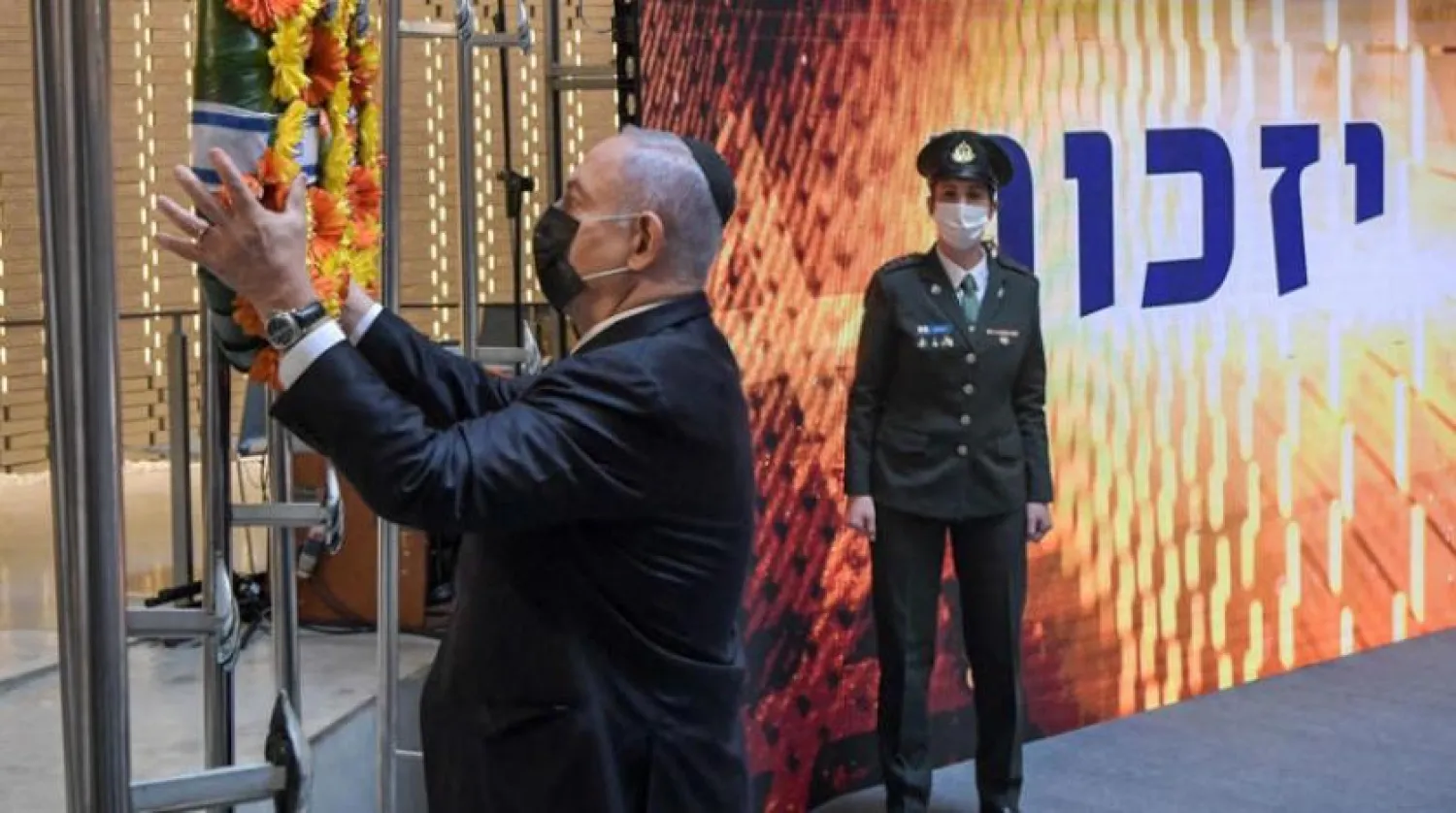Israeli Prime Minister Benjamin Netanyahu has issued veiled threats to Iranian leaders, although a high-ranking Israeli officer denied any intention to respond to an Iranian attack on an Israeli-owned ship off the UAE coast.
However, Netanyahu warned of mistaking “self-restraint” to “weakness.”
Speaking at the main ceremony to commemorate Israel's fallen service people, Netanyahu said the 1973 Yom Kippur War “and the tremendous sacrifice made by our fighters paved the way for peace with Egypt but also taught us an invaluable lesson: We must never remain indifferent to threats of annihilation and destruction by those who hate us.”
He added: “We must hold onto our land with all our might and with all our determination.”
"This number, 73, expresses that. It is a number that is deeply engraved in me, in all of us. I remember that terrible night in February of 1997, the night we lost 73 soldiers in the helicopter disaster. One of the fallen was Kobi, the son of our friend Eli Ben-Shem.
The number 73 is linked to another period that greatly tested our people. I remember the fall of '73 very clearly: The Yom Kippur War began with the shock of a surprise attack and ended in a great victory,” the PM added.
In a related context, "Israel Defense" website revealed in a report the map of the nuclear reactor and the volume of the strike that targeted it on Sunday.
The current enrichment capacity at the Natanz Fuel Enrichment Plant (FEP) and Fordow plant is 8,258 SWU per year.
If Iran installs all cascades of advanced centrifuges it is currently installing and firmly planning (a total of six), the total capacity increases to almost 12,900 SWU per year. This enrichment capacity is almost three times larger than allowed under the JCPOA, the report added.









